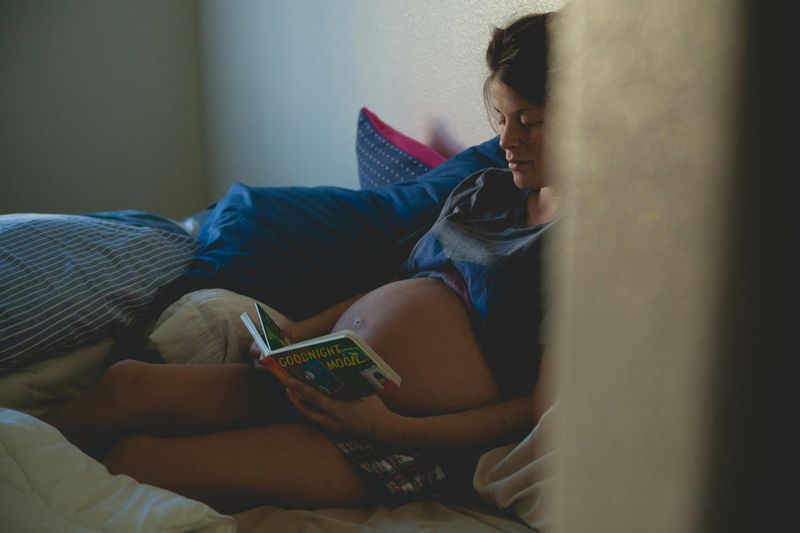Let’s get one thing straight: pregnancy is magical, but it can also be emotionally chaotic. While everyone loves to talk about the glowing skin, the cute bump, and the nursery décor, not enough people are talking about the rollercoaster of pregnancy mood swings. One minute you’re weeping over a diaper commercial, the next you’re rage-cleaning your kitchen because your partner said, “What’s for dinner?” Wrong move, buddy.
The mood swings hit hard—and often without warning. Hormones like estrogen and progesterone spike dramatically during pregnancy, affecting neurotransmitters in your brain. That means your emotional control center is basically doing somersaults while you’re just trying to survive another day without screaming into a pillow. And yes, those tears over dropping your toast? Totally legit.
I’ll be honest: at first, I thought something was seriously wrong with me. I’ve always been the “hold it together” type, but pregnancy stripped that away like old wallpaper. Turns out, I wasn’t alone. Talking to other moms helped me realize this emotional mayhem is part of the package—just one that’s rarely unwrapped in public.
So, if you’re sitting there, a sobbing burrito of hormones wondering if it’s normal to hate your partner for chewing too loud, I see you. I was you. And while nothing completely cures the drama, these things kinda worked for me.
What causes pregnancy mood swings?
There’s a lot going on behind the scenes when you’re pregnant, and mood swings are usually the result of a few powerful factors working together.
Right from the start, your hormones—especially estrogen and progesterone—start skyrocketing. These hormones impact the neurotransmitters in your brain that regulate mood. The result? Your emotions are on a rollercoaster that you didn’t sign up for, and unfortunately, there’s no seatbelt.
Add to that the physical discomfort (nausea, exhaustion, bloating), the mental load of preparing for a new baby, and the lifestyle changes that hit hard (goodbye wine and sushi), and it’s no wonder you’re feeling overwhelmed.
Your body’s not just creating life—it’s redistributing energy, nutrients, and emotions in real time. And while your baby is busy growing and thriving, you’re the one feeling the effects of the hormonal upheaval.
Can pregnancy mood swings be managed?
Let’s be clear—there’s no magical switch to turn off mood swings completely. But there are ways to soften the highs and lows and keep yourself (mostly) grounded.
That said, it’s okay to have off days. You don’t need to be a zen goddess every moment of your pregnancy. You just need a few tools to help you through the rough patches—and that’s what we’re here to share.
Remember, before trying anything new (including supplements or lifestyle changes), always check in with your doctor. Every pregnancy is different, and your provider will know what’s safest and most effective for you.
Snacks = Sanity
You know the phrase “hangry”? Multiply that by pregnancy and you get “pregnangry” (yes, I’m making that a word). Low blood sugar can intensify mood swings more than you’d expect. The moment I started getting emotional, 9 times out of 10, I realized I hadn’t eaten in hours. Not because I wasn’t hungry, but because I got distracted by a thousand other things—like whether my belly button was popping out too early.
Keeping snacks nearby saved me and my household from many hormonal disasters. I started stashing granola bars in my bag, crackers in the glove compartment, and fruit in the fridge that I actually wanted (looking at you, mango). My husband even got used to carrying snacks in his pocket like some sort of mom-supporting kangaroo.
And let’s not forget the emotional power of a comfort snack. Some days, all it took to stop the tears was a warm cookie or a bowl of cereal that didn’t judge me. Feeding myself wasn’t just about nourishment—it was emotional triage.
Dramatic Baths.
There’s something about soaking in a tub that just makes the world feel less… unhinged. When the mood swings started creeping in like uninvited guests, a bath became my go-to escape. I wasn’t just cleaning myself—I was resetting my emotional frequency. Bonus points if the lights were dimmed and I had a ridiculous Spotify playlist called “Don’t Cry, You’re Pregnant.”
I took dramatic baths. Like, full-on candlelit, eucalyptus-scented, lock-the-door-and-pretend-I’m-in-a-spa kind of baths. It gave me permission to step away from whatever drama I had just manufactured in my brain and say, “Okay, maybe I’m just overwhelmed.”
Sometimes I cried in the bath. Sometimes I laughed at how dramatic I was being. Sometimes I just lay there like a baked potato in hot water. All were healing in their own way. Baths didn’t solve everything, but they sure delayed a few emotional outbursts—and that’s a win in my book.
Do the Chill Stuff (Even if You Don’t Feel Chill)
You know how people say, “Just breathe”? Yeah, I used to hate that too—until I realized it actually works. I didn’t become a yoga mom or a meditation guru overnight, but I did start doing small, chill things that helped lower the emotional temperature in the room. Sometimes that meant deep breathing. Sometimes it meant lying on the couch like a log while listening to rain sounds. Whatever worked.
I gave myself permission to do nothing—and that was huge. I’d always been the type to push through discomfort, stay productive, and keep the to-do list moving. But pregnancy humbled me. I needed rest, silence, and moments of stillness more than I ever had before.
My favorite move? The “slow scroll”—just sitting outside, phone on silent, and watching clouds or trees like a toddler discovering the world. It didn’t fix the hormones, but it made them feel less loud. And that was enough.
Give Yourself a Freakin’ Break!
Let’s be real: no one is more critical of a pregnant woman than herself. I beat myself up for snapping, crying, being lazy, forgetting things, and basically existing with less-than-perfect grace. But the truth is—pregnancy is messy. You’re not going to float through it on a magical hormone cloud. Sometimes, you’re going to trip over your own feelings.
The best thing I did for myself? Dropping the guilt. I stopped saying “I’m sorry I’m being emotional” and started saying “Thanks for understanding I’m emotional.” I reframed it not as a flaw, but as a fact. Hormones are real. Mood swings are real. And they don’t make you a bad mom or partner—they make you human.
I also asked for more support. That’s hard when you’re used to being the strong one, the planner, the fixer. But letting go of that perfection helped me be softer with myself—and being soft is not weak. It’s strong in a whole new way. And I think that’s part of the magic of becoming a mom.
What if nothing seems to help?
Sometimes mood swings go beyond what’s expected or manageable. If you’re experiencing persistent sadness, hopelessness, anxiety, or emotional numbness, talk to your healthcare provider. You might be dealing with prenatal depression or anxiety—both of which are real, valid, and treatable.
You don’t have to “tough it out.” Mental health is just as important as physical health during pregnancy, and help is always available.
There are also support groups, therapists who specialize in perinatal care, and communities of moms who’ve been through it and understand. You don’t have to feel alone in this.
You’ve got this—even on the hard days.
Pregnancy mood swings can feel like riding an emotional rollercoaster without a seatbelt. But you’re not failing—you’re adapting to one of the biggest changes your body and mind will ever go through.
With some snacks, humor, warm baths, breathing space, and lots of self-compassion, you can make this journey a little smoother—and maybe even a little fun.
So next time you find yourself crying over soggy toast or yelling at your phone for autocorrecting your baby name idea, remember: you’re doing just fine. And you’re not alone.
Breathe. Laugh. Snack. Repeat.




